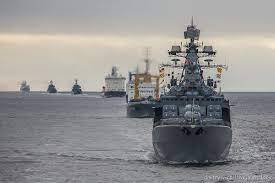Ukrainian grain agreement. Ukraine and the world: what's next?

The problem of the existence and implementation of the grain agreement does not disappear from the daily columns of the media. This issue constantly remains in the information field because of its critical importance for the whole world.
In particular, precisely because of the importance of solving the issue of a stable flow of Ukrainian grain, the European Commission recently called on all parties to the grain agreement, which is guaranteed by Turkey and the UN, to continue its operation in order to ensure supplies of Ukrainian grain to consumers of agricultural products on the world market. As the spokesperson of the European Union Peter Stano stated, if there was no criminal aggression of Russia against Ukraine, we would not have to discuss the Black Sea grain initiative now.
"If there was no criminal aggression of Russia against Ukraine, we would not have to discuss the Black Sea grain initiative now. The priorities of the European Commission in this case and in its continuation are the possibility of delivering Ukrainian grain to consumers on the world market. We call on all parties to continue this important initiative. We appreciate the negotiations under the leadership of the UN and Turkey, and are ready to consider all solutions that meet our goal - to limit Russia's ability to wage an aggressive war against Ukraine as much as possible," said Peter Stano.
At the same time, the speaker decided not to comment on the assumptions of journalists regarding the fact that the European Union is considering the option of lifting sanctions against the bank of Russia in exchange for the stable operation of the grain agreement. He referred to the fact that such actions are within the competence of EU member states, and their discussion is confidential. It should be noted that in July of last year, the European Union adopted the sixth package of anti-Russian sanctions for the full-scale war it unleashed against Ukraine.
However, for example, in Great Britain there is currently no confidence in the extension of the grain agreement, because the Russian Federation continues to violate world food security. This was stated by the representative of Great Britain at the UN, Barbara Woodward. She emphasized that every time the period of renewal of the grain agreement approaches, Russia is playing on the line with food on the tables of people all over the world. Barbara Woodward added that powerful countries were neglecting their responsibilities and the UK wanted to be an agent of progress to change that. The official recalled that the grain agreement expires on July 18, and Great Britain supports its extension. Regarding Russia's promise to give free grain to African countries, she said that she does not take this promise "at face value."
The issue of navigation safety in the Black Sea, which could be ensured by three NATO countries — Romania, Bulgaria and Turkey — remains important. Andrii Klymenko, the head of the Monitoring Group of the Institute of Black Sea Strategic Studies, told about this in the article on Latifundist.com "Without Russia: An alternative scenario for the operation of the grain corridor after July 17". Thus, these countries would solve two issues, he believes. The first is the protection of one's own gas fields. If you draw an imaginary straight line from the Bosphorus to Odesa, then it coincides with the sea route recommended for commercial vessels to the ports of Odesa. To the right of this line in Turkey's maritime economic zone, about midway between the Bosphorus and Sevastopol, there are huge deposits of natural gas. Turkey has already laid a gas pipeline from there to the coast. To the left of the above imaginary line, in the maritime economic zone of Romania, there are also several gas platforms where it extracts hydrocarbons. They need to be protected, so countries could create a patrol group of warships that would not only patrol their areas, but also escort the ships.
"The second issue that could be resolved by the three NATO countries is the protection of commercial shipping from the threat of mines. In the Black Sea, the number of cases of detection of floating mines has increased. And after the Russian sabotage at the Kakhovskaya HPP, their number will increase. Therefore, according to Andrii Klymenko, a group of minesweepers is needed to ensure the safety of shipping near the coasts of Bulgaria, Romania and Turkey, including from such mines. Mine trawlers are part of the naval forces of all these countries," the article says.
In this regard, it is worth mentioning that today, July 5, Russia stated that it has not made a final decision regarding the extension of the grain agreement, while the UN has promised to make every effort to extend the agreement until its expiration on July 17.
"We have not yet officially announced the decision, we will announce it in time," the Kremlin emphasized, Reuters reports.
We will remind: in accordance with the grain agreement, Russia guaranteed the safety of ships going to and from Ukrainian ports through the waters controlled by it. When it was signed in July 2022, the UN and Russia also signed a memorandum of understanding, committing the UN to facilitate the unhindered access of Russian fertilizers and other products to world markets. Speaking to reporters in Geneva, the UN's top trade representative, Rebecca Greenspan, said both deals were crucial.
"We need both to continue to lower prices and to have stable food and fertilizer markets in the world. The United Nations remains committed to making every effort to continue the agreements,” Greenspan said.
 Found a mistake on the site? Tell us:
Found a mistake on the site? Tell us:

 Telegram
Telegram